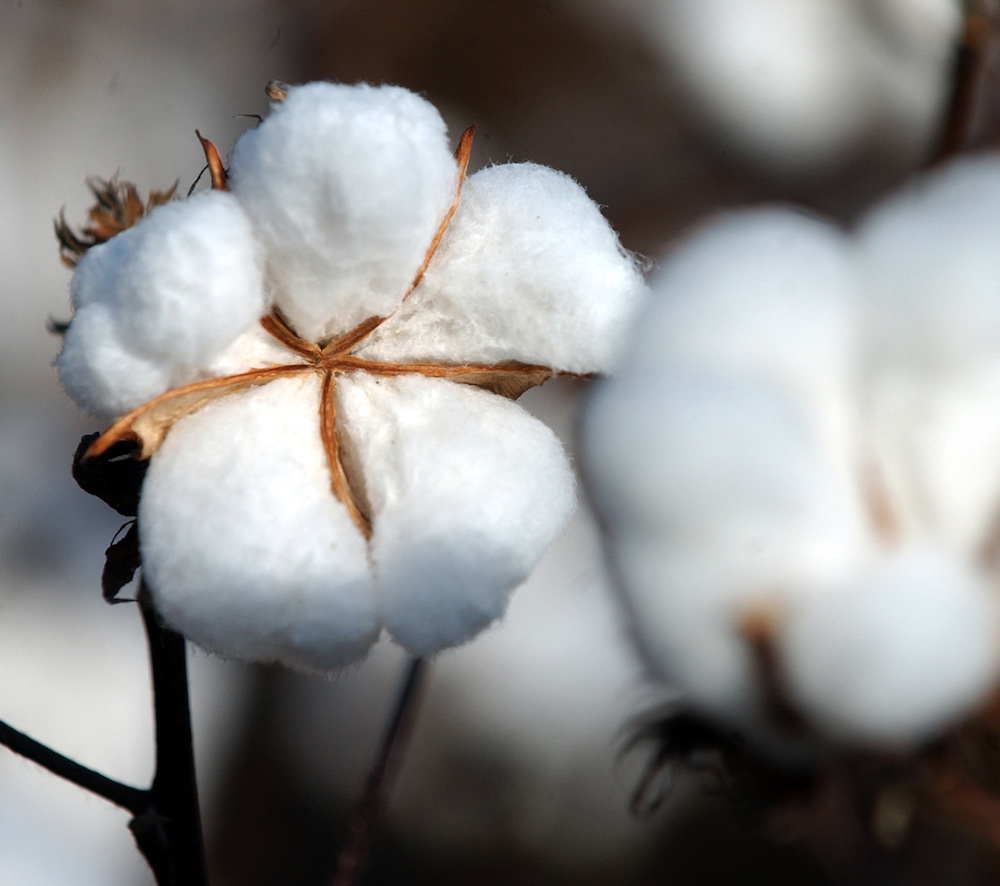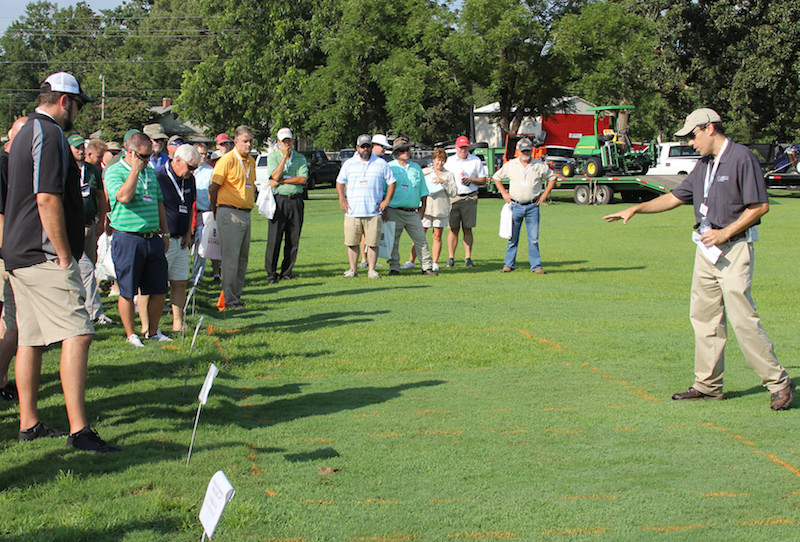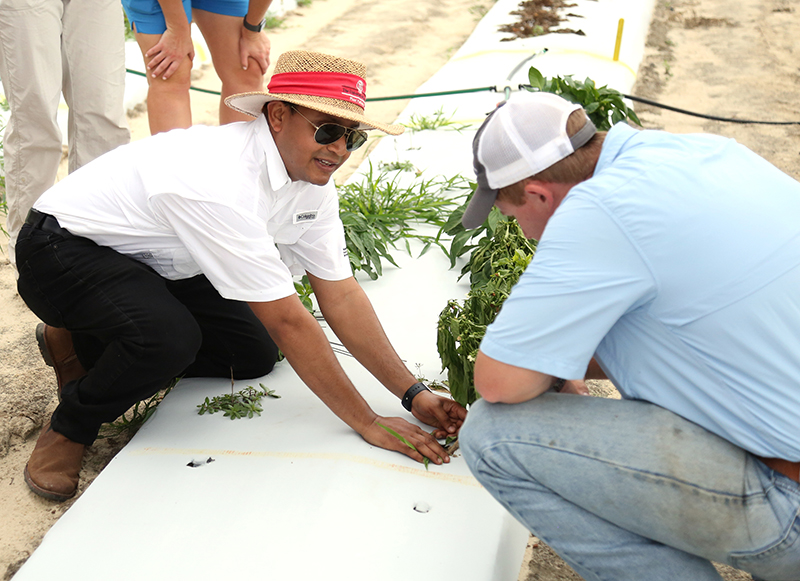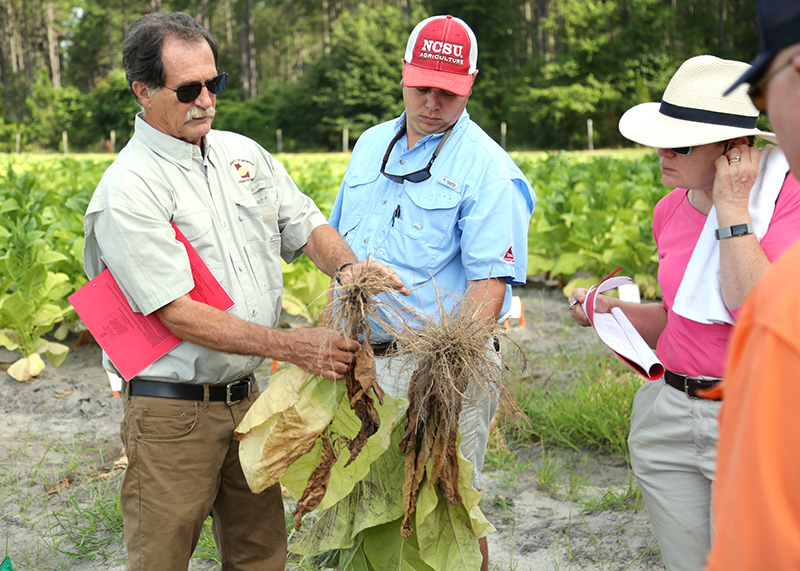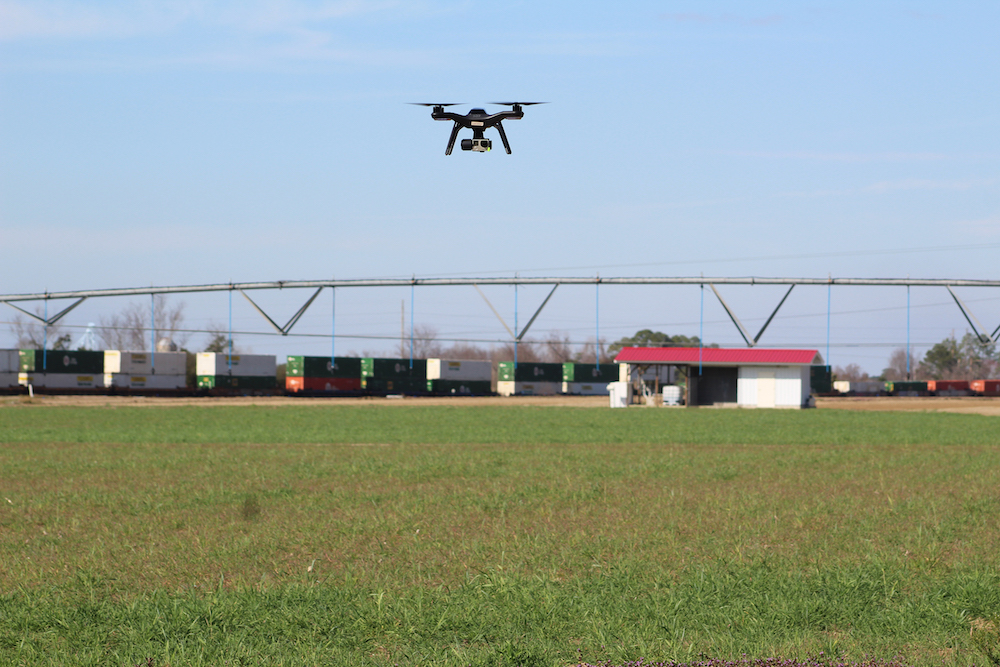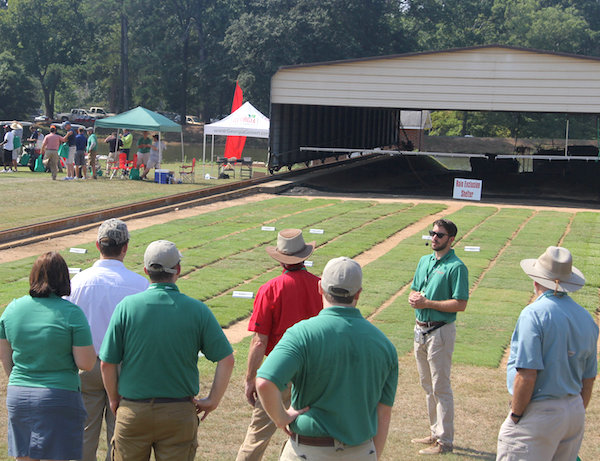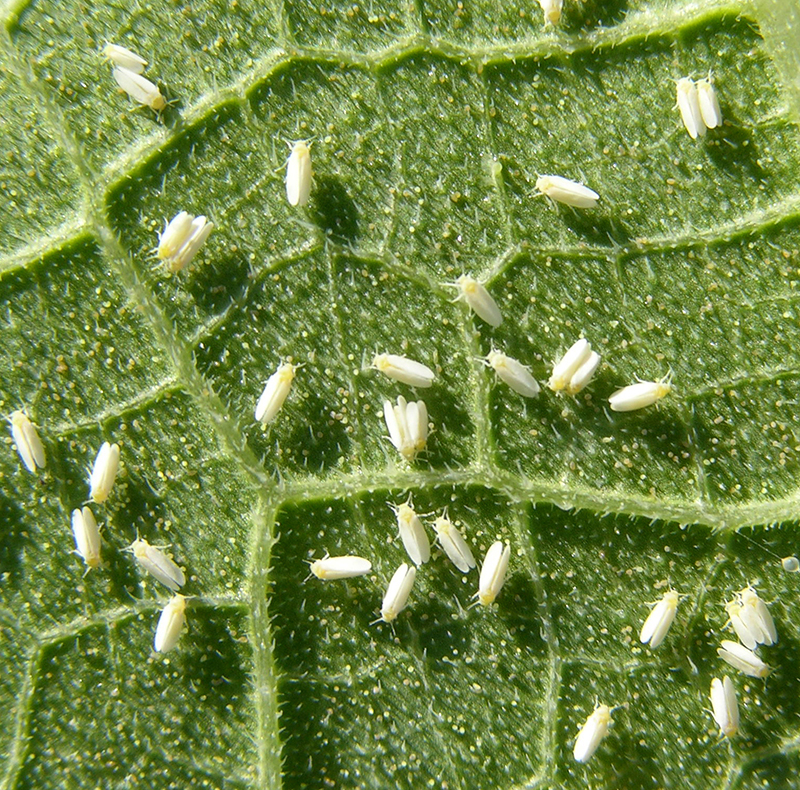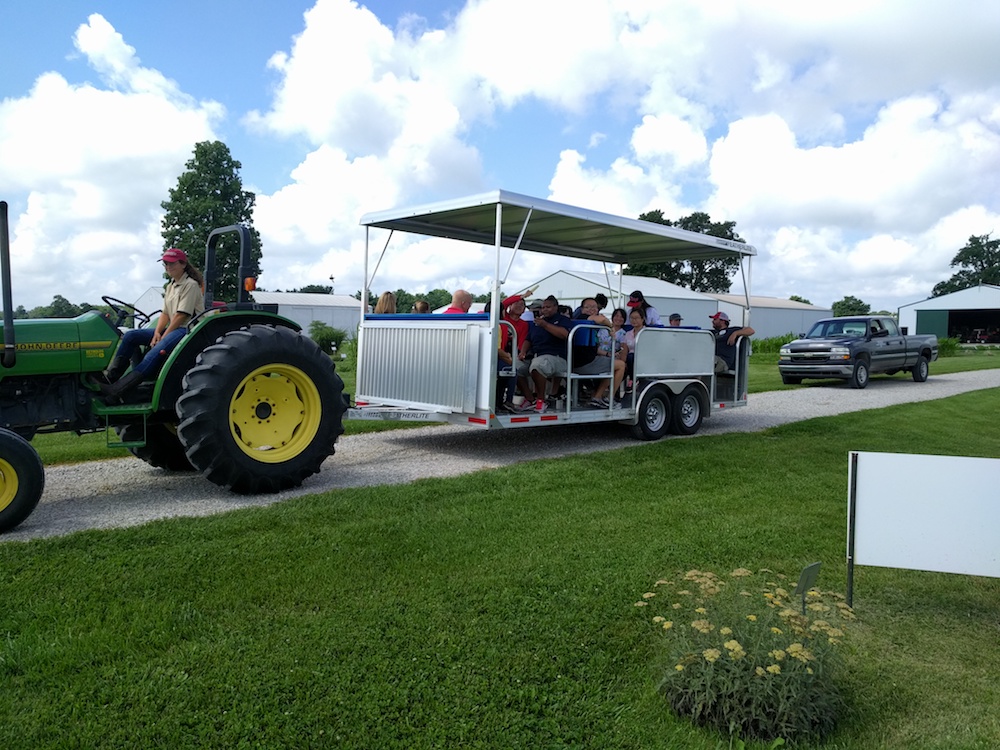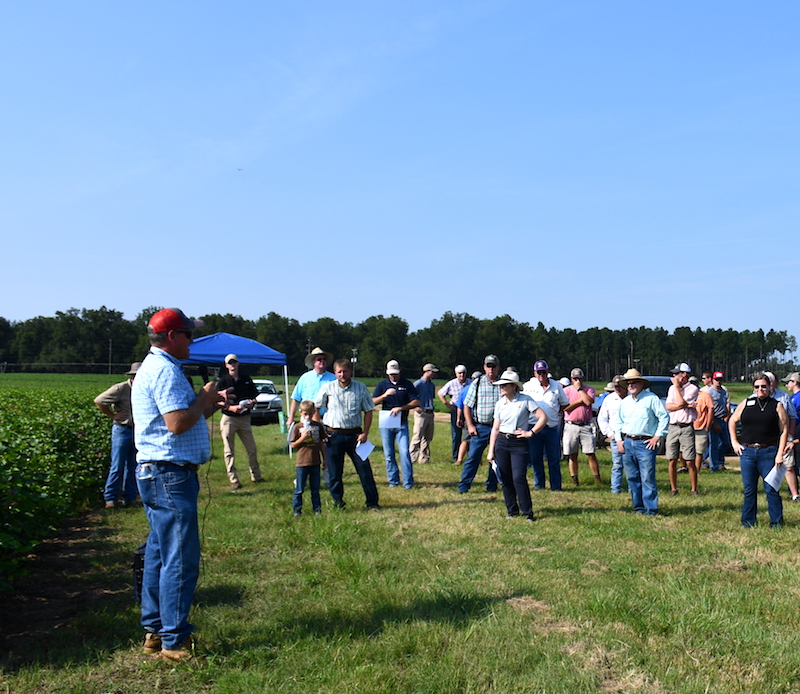 CAES News
CAES News
Field Day
University of Georgia College of Agricultural and Environmental Sciences (CAES) specialists and UGA Cooperative Extension agents hosted a Row Crop Field Day on Aug. 15, 2018, at the Southeast Georgia Research and Education Center in Midville, Georgia. The field day highlighted the facility’s research on Georgia row crops such as cotton, peanuts, corn and soybeans.

